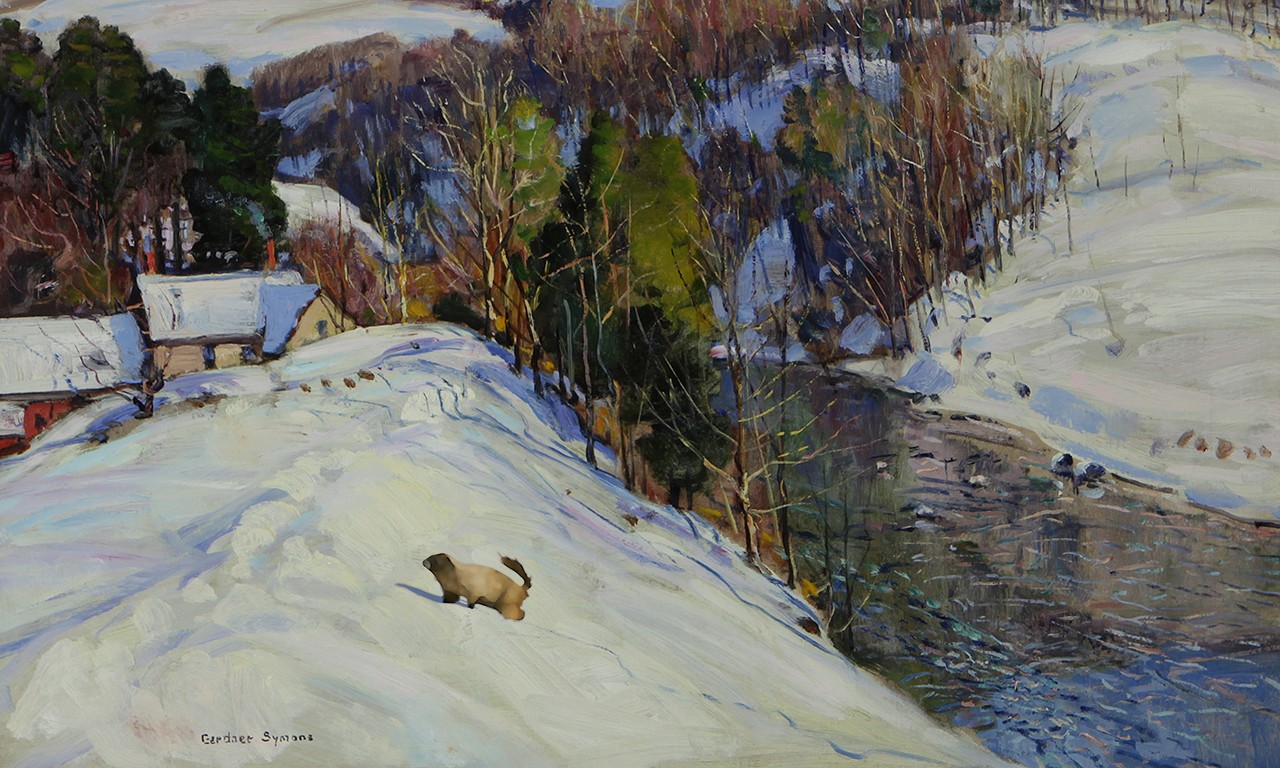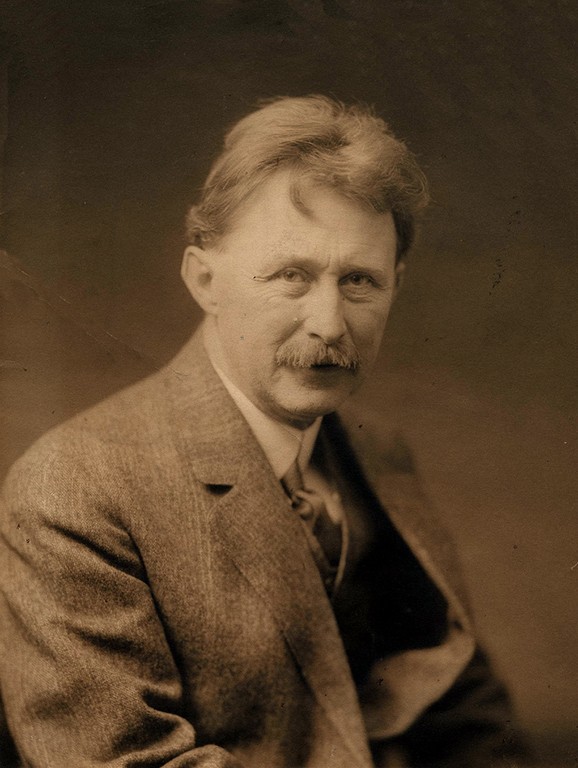2002 North Main Street
Santa Ana, California 92706
TEL: 714.567.3600
Gardner and the Groundhog
 |
|
Winter Landscape—Sunlit Hill with added groundhog, c. 1925
George Gardner Symons (American, 1863-1930)
Oil on canvas; 41 x 47 x 1 1/2 in.
F7680
Martha C. Stevens Memorial Art Collection
|
Groundhog Day Celebration... Again
With Groundhog Day again bringing Punxsutawney Phil, the world's most famous groundhog, from his winter abode to predict an early spring or six more weeks of cold weather, the Bowers Blog again looks at an artist who painted both winter and spring seasons in the two disparate locales he lived and worked in. Here time repeats once more as we feature George Gardner Symons’ Winter Landscape—Sunlit Hill and Sand Dunes, and find parallels between them and the two potential futures that everyone's favorite marmot can predict.

 |
| George Gardner Symons, c. 1920 |
George Gardner Simon was born in Chicago, Illinois in 1863. As a young Jewish man, his concern for rising anti-Semitic sentiments eventually led him to change his last name from Simon to the far more cryptic Symons. He had at least three undying passions: art, nature, and travel. In his life as a semi-nomadic plein air painter he successfully combined the three. He spent the years of his young adulthood studying at the Chicago Art Institute and traveling across Europe learning from the Impressionist greats of the time. It was during this time that he met a fellow painter and lifelong friend, William Wendt. The pair were inseparable. In 1884 they became two of the earliest artists to explore Laguna Beach’s potential as a thriving artists’ colony, which they would both return to after the turn of the 20th century. Despite the many beautiful seascapes and coastal scenes he painted, Symons is best known as a painter of snow-covered New England. During different periods, he had studios in New York City and Colrain, Massachusetts from which he ventured into the nearby forests and hills to paint scenes of rural winter.

 |
|
F7680
Martha C. Stevens Memorial Art Collection
|
A Long Winter
It is difficult to get a feel for Symons’ disposition. He has been simultaneously described as both someone who created works with “a joyousness, a hopefulness, a certain wide-eyed, jubilant outlook,” and someone whose works are “somber in tone.” Considering that one of his submissions for the 13th Annual Exhibition of American Artists at the Art Institute of Chicago was just titled, Sorrow, one might be more inclined to agree with the latter critic. His impressionistic style was certainly well suited to his cold subject matter. Thick brush strokes form light, airy snowbanks and glossy reflections in the rivers and streams flowing through his New England paintings. In his own lifetime, he was described as the best American painter of snow scenes and his works are now held in some of the most prestigious institutions in the United States.

|
Sand Dunes, c. 1905
George Gardner Symons (American, 1863-1930)
Oil on canvas; 18 x 30 in.
8642
Gift of The Blanche L. Dolph and Lucille McGaughey Estate Memorial Art Collection
|
An Early Spring
At the same time, there is something uplifting about Symons' works. Even though the scene of Winter Landscape—Sunlit Hill is desolate, there is certainly a warmth found in his palette which throws the snow into wonderful contrast. As noted above, early in his career Symons found his way westward and fell in love. For an artist so characterized by his ability to capture the stark landscapes of the Northeast, his paintings of the Grand Canyon and Laguna Beach stand in opposition to this. Sun-drenched valleys and beaches brimming with the potential energy of summer became his favorite subjects during the multiple visits to Laguna Beach, California and Arizona between 1902 and 1915. Now painting bluffs, oceans, and dramatic rock faces, Symons employed the same strategies he used in painting rolling, snow-covered hills. The result is best described by another critic as a “direct communion with nature.”

Groundhog Day Celebration
Had Symons been eagerly awaiting this year's report from the Groundhog Day Ceremony in Punxsutawney, Pennsylvania, maybe he would have hoped for a longer winter to paint one of his favorite snow-blanketed landscapes; perhaps he would have hoped for an early spring to paint a coast bathed in warm sunlight. Likelier still, Symons would have appreciated either option, making the most of whatever nature throws his way. This time around, Phil has predicted six more weeks of winter, so it's snowscapes for the time being.
Text and images may be under copyright. Please contact Collection Department for permission to use. Information subject to change upon further research.

Comments